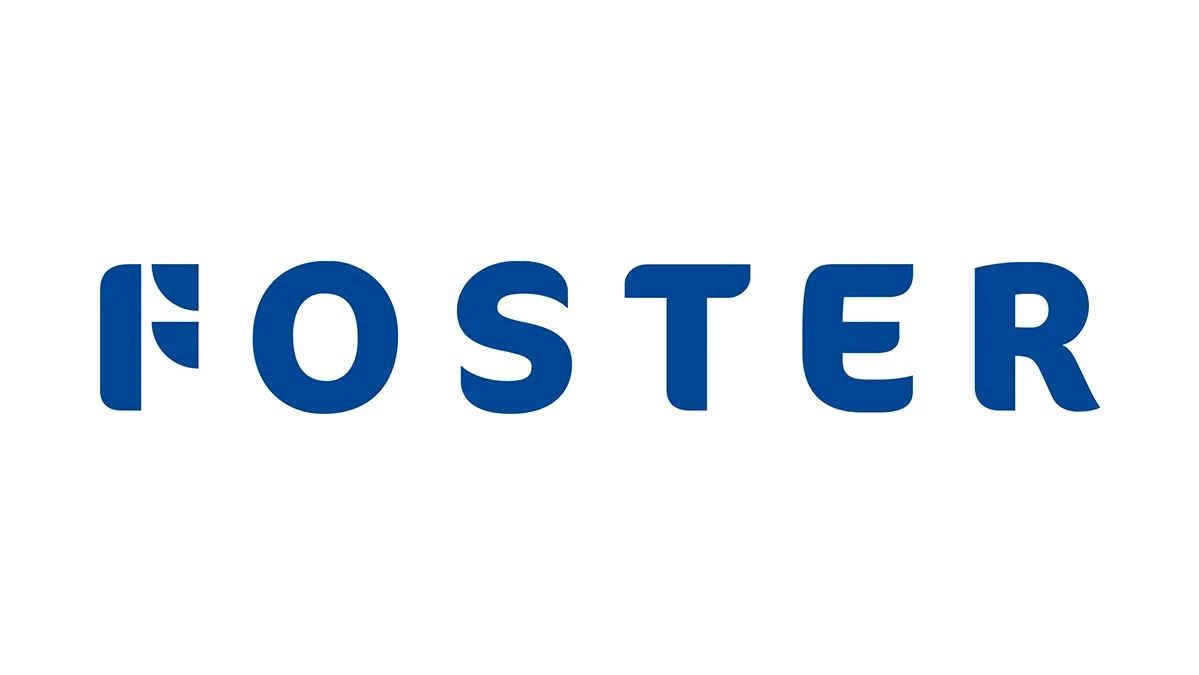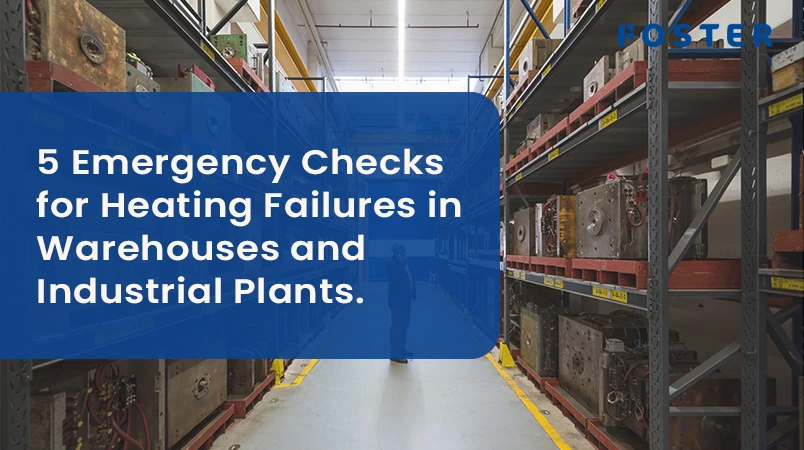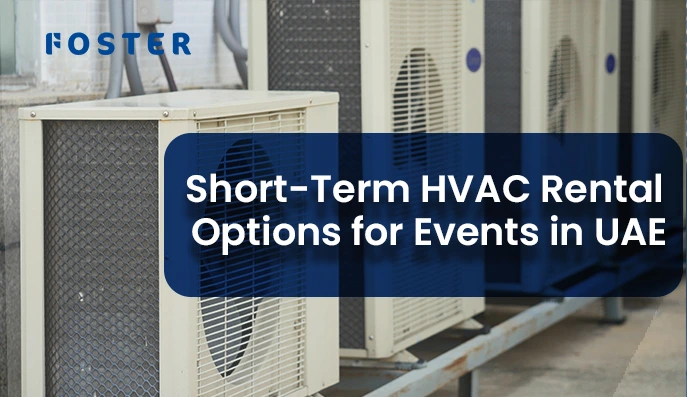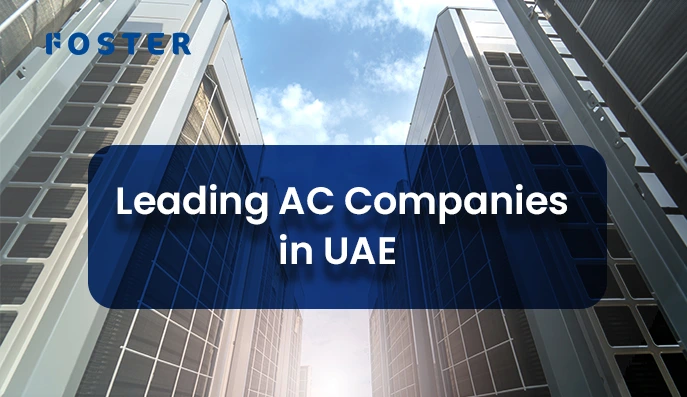When temperatures drop and your industrial heating system fails, it’s more than just a comfort issue—it’s a major disruption. Production can halt, equipment can suffer, and even employee safety can be compromised.
Before arranging an emergency service for your HVAC system, your facilities or maintenance team can carry out several quick assessments. Often, the answer is straightforward, and you can get your heating and operations back up and running sooner than you might expect.
Let’s start with a quick checklist to diagnose the problem, and then dive deeper based on your specific symptoms.
This comprehensive guide covers:
- 5 Quick Things to Check If Your Industrial Heater Isn’t Working
- Common Reasons Your Industrial Heater Isn’t Working
- How to Prevent Heating Failures Before They Disrupt Operations
- DIY Fixes vs. When to Call Heating Engineers
- Need Immediate Industrial Heater Repair?
- Frequently Asked Questions (FAQs
- Conclusion: Restore Heat, Avoid Downtime
5 Quick Things to Check If Your Industrial Heater Isn’t Working
| Problem | What to Check | Quick Action |
| Thermostat/Building Management System (BMS) faults | BMS settings, thermostat wiring, and control panels | Reset settings, check connections |
| Electrical supply issues | Circuit breakers, dedicated HVAC fuses | Reset breakers, inspect for faults |
| Airflow blockages | Industrial air filters, intake vents | Replace filters, clear obstructions |
| Fuel supply disruptions | Gas valves, oil lines, and diesel supply | Verify supply lines, reset valves |
| Mechanical failures | Motors, belts, blower assemblies | Inspect for damage, tighten/replace parts |
Tried these quick fixes and still no luck? Let’s dig a little deeper!
Common Reasons Your Industrial Heater Isn’t Working (and How to Address Them)
1. BMS or Thermostat Malfunctions
In large facilities, the Building Management System (BMS) controls HVAC operations.
If heating isn’t working:
- Check BMS settings for any overrides or faults.
- Ensure thermostat zones are correctly programmed.
- Verify communication between the BMS and HVAC units.
Pro Tip: A simple BMS software reset often clears minor faults, saving downtime.
2. Electrical Supply Problems
Industrial HVAC systems require a large, stable electrical supply.
- Check dedicated HVAC breakers and fuses.
- Look for visible damage to wiring or panels.
- Ensure backup generators (if installed) are fully operational.
Note: Frequent tripping usually indicates an underlying issue—call professional support if this happens.
3. Clogged Filters or Blocked Airflow
Large-scale HVAC systems rely on unrestricted airflow for proper operation.
- Inspect industrial air filters for dirt or blockages.
- Check intake and exhaust vents, especially on rooftop units.
- Clean or replace filters regularly based on operational hours and site conditions.
Warning: Blocked airflow can cause system shutdowns or reduced heating efficiency. Regular HVAC maintenance plays a key role in preventing such issues.
4. Fuel Supply Interruptions (Gas, Oil, Diesel)
For gas, oil, or diesel-powered heaters:
- Verify gas valves and oil lines are open and operational.
- Check for alarms related to fuel supply in the BMS.
- Inspect tanks for sufficient fuel levels.
Safety Tip: If you smell gas or detect fuel leaks, evacuate and contact emergency services immediately.
5. Mechanical Failures Inside the Unit
Industrial heaters have more moving parts than residential units.
- Inspect belts, motors, and blower assemblies for wear.
- Listen for unusual noises such as grinding or banging.
- Tighten any loose fasteners or components.
Reminder: Preventive maintenance schedules help catch mechanical failures before they cause shutdowns.
How to Prevent Heating Failures Before They Disrupt Operations
While emergency repairs are beneficial, the most effective way to safeguard your facility is to avoid heating malfunctions from occurring in the first place.
Here’s how your facility team can prepare your industrial HVAC system before winter hits:
Pre-Season Preventive Maintenance Checklist:
- Schedule a professional inspection every fall—before heating demand spikes
- Test-run heaters and blowers early to catch faults while you still have lead time
- Clean or replace air filters before the cold season begins
- Check fuel levels and supply lines for diesel, oil, or gas-powered systems
- Inspect belts, motors, and bearings for signs of wear
- Calibrate thermostats and BMS settings to winter-ready schedules
Bonus Tip: Keep a supply of critical spares—filters, belts, fuses, and even backup heaters—to reduce downtime during peak season. For actionable tips, check out our guide on preventive maintenance for HVAC systems.
Why It Matters:
- Prevent emergency shutdowns during high-demand periods
- Avoid costly repair premiums for last-minute service calls
- Ensure employee safety and compliance with temperature regulations
- Keep production lines running smoothly, no matter how low the temperature drops
DIY or Call Heating Engineers
While your maintenance crew or facility team can swiftly address certain heating problems in warehouses or industrial facilities, others pose safety hazards or call for special tools and knowledge. Here’s how to know the difference:
You Can DIY If:
- The thermostat or BMS just needs a reset or reprogramming
- A circuit breaker has tripped once, and there’s no visible damage
- Filters are clogged and simply need replacing
- Intake vents are visibly blocked and easy to clear
- You’re performing basic visual inspections for loose belts or motor issues
Pro Tip: Always document your steps. If you need to call a contractor, it helps speed up diagnostics.
Call a Professional If:
- Heating fails across multiple zones or entire facilities
- Circuit breakers repeatedly trip, or there’s visible electrical damage
- The BMS shows persistent system-wide faults or alarms
- There are signs of fuel leaks, strange odors, or gas smells
- You hear grinding, banging, or overheating in the HVAC units
- You’re unsure or lack the tools to safely inspect mechanical components
Reminder: Waiting too long to call professionals can lead to prolonged downtime, more expensive repairs, and even safety hazards. Here’s how to choose the right HVAC contractor for fast, reliable service.
Need Immediate Industrial Heater Repair?
As a trusted commercial and industrial HVAC contractor, we specialize in servicing:
- Manufacturing plants
- Warehouses
- Data centers
- Commercial facilities
- Industrial complexes
Our certified technicians offer:
- Same-day emergency repair
- Complete diagnostics of large-scale HVAC systems
- Preventive maintenance programs to avoid future shutdowns
Conclusion
Heating failures in industrial and commercial spaces can disrupt operations, impact safety, and lead to costly downtime. By performing quick checks and knowing when to call a professional, you can restore heat faster and avoid prolonged disruptions. You can also explore how an HVAC Annual Maintenance Contract (AMC) helps minimize emergency calls and unplanned downtime, keeping your system running smoothly when it matters most.
Get your heating back up and running fast!
Get in touch with Foster for same-day service. Let’s keep your operations running safely and efficiently.



 Previous Post
Previous Post


